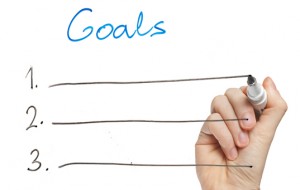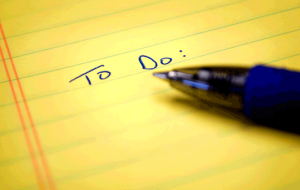
Yes, many freelancers would love to make more money than they are now, but money isn’t their primary motivation.
Most freelancers I know just want to enjoy and control their own lives.
That’s where I was at the beginning of 2013. I wanted to double my hourly rate – for the primary purpose of having more leisure time. Throughout the year I tested different techniques and strategies so I could work less and earn more.
Some worked. Some didn’t.
But, at the end of the year, I more than doubled my hourly rate and I worked less than part time (or 20 hours per week).
If you too want to work fewer hours – or increase your hourly rate – here are 8 ways to maximize your working hours …
1. Develop better working habits.
The most important thing I did in 2013 to work less and earn more was improving my work habits. I used to have some pretty bad ones – like oversleeping, procrastinating until the very last minute, and even avoiding marketing my business.
I realized successful people have successful habits. If I wanted to be one of them, I needed to create the right habits.
Getting up early and planning my projects ahead of time were likely the most effective habits I developed in 2013. Those two habits alone have taken my career to the next level!
For more “success habits” I turned to successful people’s advice, like Steven Covey’s “The 7 Habits Of Highly Effective People”.
2. Create a “master” plan with real goals.

- First, I wasn’t sure how my goals would fit into my life plan.
- Second, the motivating factors to achieve my goals were weak.
- Finally, I wasn’t sure how to get to my goal. I was essentially grasping at straws.
I didn’t find a solution until 2013 was nearly over. I picked up a copy of “The Pledge” by Michael Masterson. It walked me through creating my master plan and helped me discover that I hadn’t actually created a goal. Instead, I was dreaming about how my life would be, but not taking the right actions.
The Difference Between a Goal and a Dream
A goal requires action on your part, while a dream is fantasy. A dream is something that can come true without you lifting a finger. Your goals will require hard work.
So what about you? What’s your master plan? Where do you want to be in 3 years? What about in 7 years? If you don’t know, pick up a copy of The Pledge. Then, check out this great system to help you organize your life’s master plan and it’s free.
3. Break your big tasks into manageable chunks.

This was another goof up that I worked on correcting in 2013. I knew it took hard work and perseverance to achieve my goals. But big goals are daunting. When you’re looking at the big picture it’s hard to see what needs to be done.
That’s why breaking your big tasks and goals into manageable chunks is necessary to working efficiently. Check out this article about making and prioritizing your tasks into to-do lists!
4. Respect your work time.
As a freelancer, having the ability to work when I want is great. But, in 2013 I didn’t stick to a real schedule … and more often than not I didn’t feel motivated to work.
I discovered that if you want to get your work done quickly, you need a work schedule. And, you need to stick to it. This ensures that you put your butt in the chair when it’s time to work. And, it also protects you from procrastinating, resistance, and guilt.
Even if you have a full time job and can only schedule a few hours per day to work, at least schedule something – and stick to it. During your “work time,” focus on a client project or something that directly brings in income. Don’t waste your work time browsing Facebook or replying to emails.
Also, I found that when you start respecting your work time, the people around you start respecting it. This means fewer distractions and better time management – allowing you to accomplish more in less time.
5. Know what you’re doing before starting.

Don’t worry, you’re not alone. I used to do that several days a week.
Then I realized I needed to plan my day before the day started. Now, at the end of each day, I look at my schedule and plan the next day. Knowing what has to get done when I wake up in the morning inspires me to get to my office sooner and complete my work faster.
And, on rare days when I forget to create my to-do list the day before, I waste a lot of the day answering emails and “networking” on social media.
6. Work when you’re working.
This one should be a “no-brainer,” but life loves to throw distractions at us and trick us into thinking the distractions are important and urgent.
To keep distractions from taking over your workday, face them head on. When a distraction comes up, write it on your to-do list. Then, get back to what you were doing. Don’t lose focus – or switch to a new task – until you’ve completed your list for the day. Then, handle those distractions or schedule them for another day.
If you need help blocking the distracting sites, check out these apps.
7. Know how long tasks take you to complete.

Here’s an example: let’s say you spend a big chunk of your time invoicing. Maybe you didn’t know that – until you started tracking your time. But, now you realize how much time it’s taking and that invoicing isn’t one of your strongest skills.
To save yourself time, work less, and earn more, you could outsource your invoicing or put some systems in place to help you. On the other hand, if you don’t track your time, you would have a vague idea – at best – of how much time (and money) invoicing really costs you.
There are many applications for your computer, smart phone, and tablet to track time – like this one – but, don’t let technology hold you back. You can track your time with just a pen and piece of paper.
8. Keep your “why” fresh on your mind.
When setting goals, always ask yourself, “Why?”
Why do you want to be a freelancer? Is it financial freedom? … A new house? … Security for your family? …
No matter your goal, knowing your why will keep you motivated during setbacks and help you overcome any fears you might have along the way.
If you’re like me and need to be reminded of your why often, consider putting images of your goals around your work area. For example, I have pictures of my dream house as my computer background and screensaver.
The 8 tips above aren’t “secrets” for you to work less and earn more. They’re solid work habits that – should you choose to adopt – will give you back your time and help you live with less freelance stress.
Not to mention that you’ll make more money in a fraction of the time.
Your turn! Have I left anything out? What are your tips for working more efficiently? I’d love to hear about them in the comments below …

